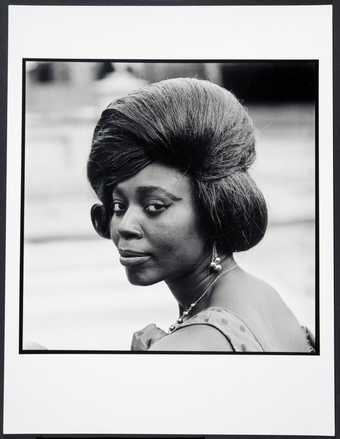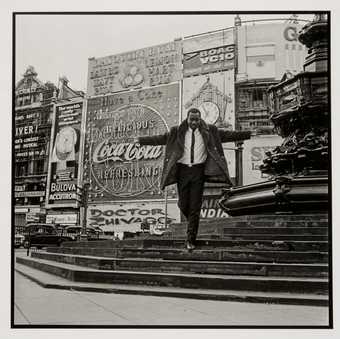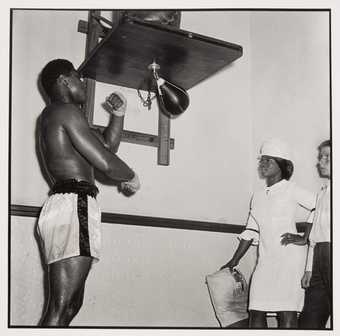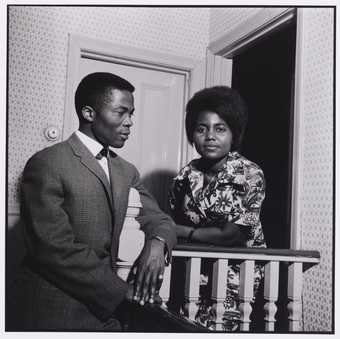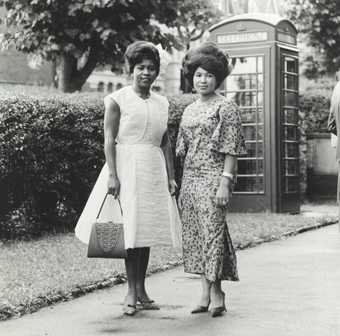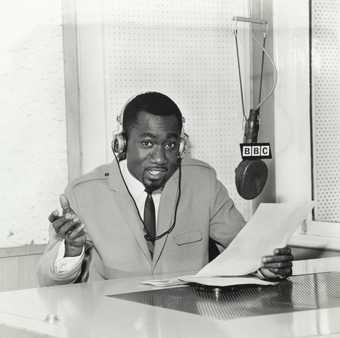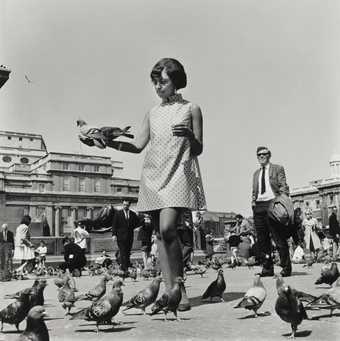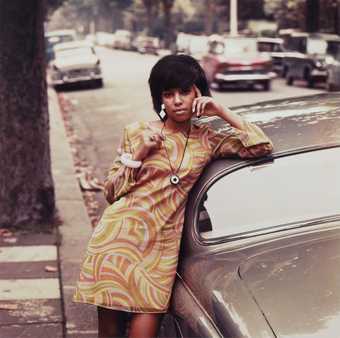Biography
James Barnor Hon. FRPS, OV (born 6 June 1929) is a Ghanaian photographer who has been based in London since the 1990s. His career spans six decades, and although for much of that period his work was not widely known, it has latterly been discovered by new audiences. In his street and studio photography, Barnor represents societies in transition in the 1950s and 1960s: Ghana moving toward independence, and London becoming a multicultural metropolis. He has said: "I was lucky to be alive when things were happening...when Ghana was going to be independent and Ghana became independent, and when I came to England the Beatles were around. Things were happening in the 60s, so I call myself Lucky Jim." He was Ghana's first full-time newspaper photographer in the 1950s, and he is credited with introducing colour processing to Ghana in the 1970s. It has been said: "James Barnor is to Ghana and photojournalism what Ousmane Sembène was to Senegal and African cinema."
Barnor has spoken of how his work was rediscovered in 2007 during the "Ghana at 50" jubilee season by curator Nana Oforiatta-Ayim, who organised the first exhibition of his photographs at Black Cultural Archives (BCA). Appreciation of his work as a studio portraitist, photojournalist and Black lifestyle photographer has been further heightened since 2010 when a major solo retrospective exhibition of his photographs, Ever Young: James Barnor, was mounted at Rivington Place, London, followed by a series of exhibitions including in the United States and South Africa. His photographs were collated by the non-profit agency Autograph ABP during a four-year project funded by the Heritage Lottery Fund and in 2011 became part of the new Archive and Research Centre for Culturally Diverse Photography.
Barnor's photographs have also in recent years had showings in Ghana, France (Paris Photo 2011, Galerie Baudoin Lebon; Galerie Clémentine de la Féronnière), The Netherlands. The first monograph of his work, entitled James Barnor: Ever Young, was published in 2015, including an extensive conversation between Barnor and Margaret Busby with Francis Hodgson.
This biography is from Wikipedia under an Attribution-ShareAlike Creative Commons License. Spotted a problem? Let us know.
Read full Wikipedia entry

